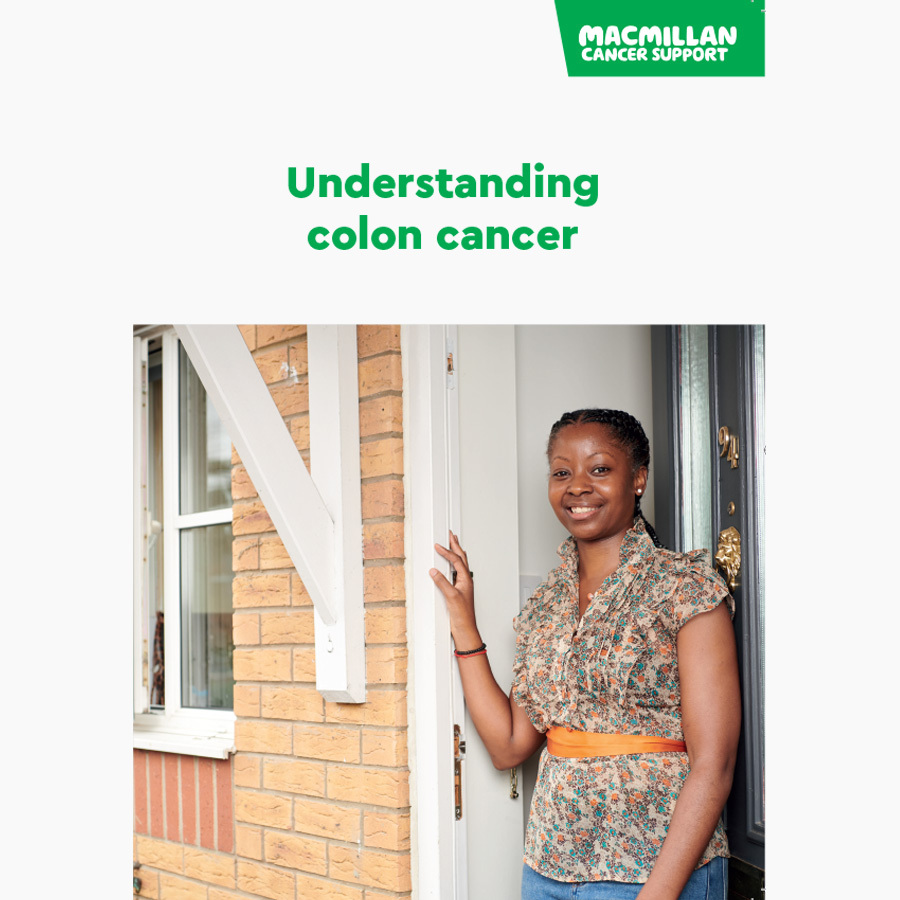Tests on the bowel cancer cells
Further tests on the bowel cancer cells after diagnosis
Bowel cancer is a general term for cancer that starts in either the colon or rectum. It is sometimes called colorectal cancer.
After bowel cancer is diagnosed your doctor might arrange for further tests on the bowel cancer cells. This can be done on cells taken during your biopsy or surgery. Tests may be done to:
- help you and your doctor to decide if you need genetic testing
- find out if the cancer cells have changes in certain genes .
If bowel cancer spreads to another part of the body, your doctor may need to take a second sample of bowel cancer cells for testing. This means having another biopsy.
Booklets and resources
Mismatch repair or microsatellite instability testing
DNA carries all your genetic information inside the cell. When a cell divides normally, the mismatch repair (MMR) system ensures new DNA is identical to the original. It does this by repairing any changes or mistakes in the DNA.
If the MMR system is not working, cancers are described as MMR deficient. These cancers often show other DNA changes that can be found by testing for microsatellite instability (MSI).
Bowel cancer cells may be tested for either mismatch repair (MMR) or microsatellite instability (MSI).
This helps you and your doctor decide whether you need genetic testing. Genetic testing may tell you whether you have bowel cancer caused by an inherited condition called Lynch syndrome. People with Lynch syndrome have an increased risk of developing bowel cancer at a young age. We have more information about Lynch syndrome.
The results of these tests can also be used to help make treatment choices.
Booklets and resources
RAS gene mutation
Doctors may test the bowel cancer cells for the RAS gene mutation.
RAS genes help control cell growth. Changes to RAS genes can affect the type of cancer treatment you have. For example, some targeted therapy drugs do not work on bowel cancer cells that have the RAS gene mutation. These drugs include cetuximab or panitumumab. Other treatments are used instead.
A normal RAS gene is sometimes called RAS wild type. If you have this, targeted therapy may be suitable for you. These are different types of RAS gene. Other RAS gene mutations that are tested for include the KRAS gene and NRAS gene. Testing for mutations can help doctors decide which treatment is more likely to work for you. These tests are usually used if you have advanced bowel cancer.
BRAF V600E gene mutation
Doctors may also test bowel cancer cells for a change in the BRAF gene. The BRAF gene makes a protein involved in cell growth. A specific change to this gene (V600E) means that the protein becomes overactive. This makes bowel cancer cells grow and divide more quickly.
Knowing whether you have the BRAF V600E gene mutation tells doctors more about how you might respond to certain treatments for advanced bowel cancer.
Getting support
You may get anxious between appointments. This is natural. It may help to get support from family, friends or a support organisation.
Macmillan is also here to support you. If you would like to talk, you can:
- call the Macmillan Support Line for free on 0808 808 00 00
- chat to our specialists online
- visit our bowel (colon and rectal) cancer forum to talk to people who have been affected by bowel cancer, share your experience, and ask an expert your questions.
About our information
This information has been written, revised and edited by Macmillan Cancer Support’s Cancer Information Development team. It has been reviewed by expert medical and health professionals and people living with cancer.
-
References
Below is a sample of the sources used in our bowel cancer information. If you would like more information about the sources we use, please contact us at
informationproductionteam@macmillan.org.uk
National Institute for Health and Care Excellent (NICE). Colorectal cancer. NICE guideline [NG151]. Updated December 2021. Available from: www.nice.org.uk/guidance/NG151 [accessed Jan 2023].
Cervantes A, Adam R, Rosello S, et al. Metastatic colorectal cancer: ESMO Clinical Practice Guideline for diagnosis, treatment and follow-up. Annals of Oncology. 2023;34(1):10-32. Available from: www.annalsofoncology.org [accessed Jan 2023].
Date reviewed

Our cancer information meets the PIF TICK quality mark.
This means it is easy to use, up-to-date and based on the latest evidence. Learn more about how we produce our information.
We want everyone affected by cancer to feel our information is written for them.
We want our information to be as clear as possible. To do this, we try to:
- use plain English
- explain medical words
- use short sentences
- use illustrations to explain text
- structure the information clearly
- make sure important points are clear.
We use gender-inclusive language and talk to our readers as ‘you’ so that everyone feels included. Where clinically necessary we use the terms ‘men’ and ‘women’ or ‘male’ and ‘female’. For example, we do so when talking about parts of the body or mentioning statistics or research about who is affected.
You can read more about how we produce our information here.
How we can help







